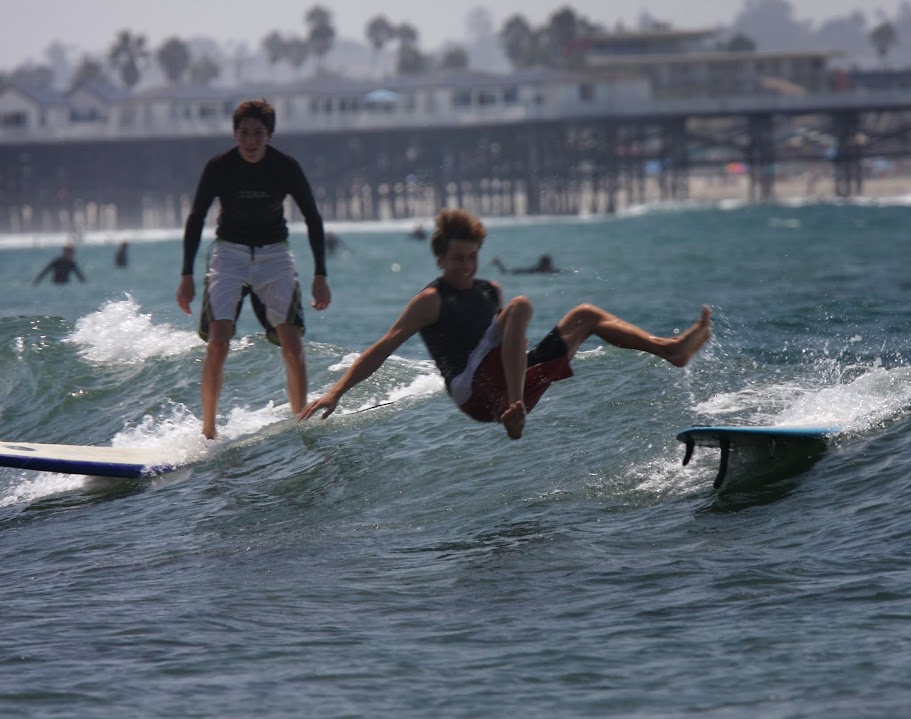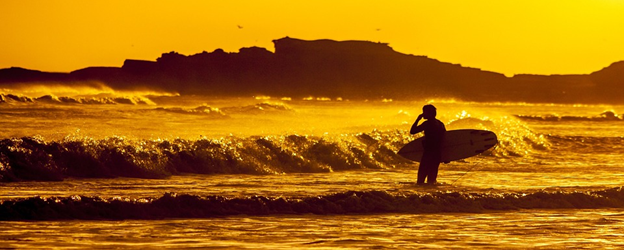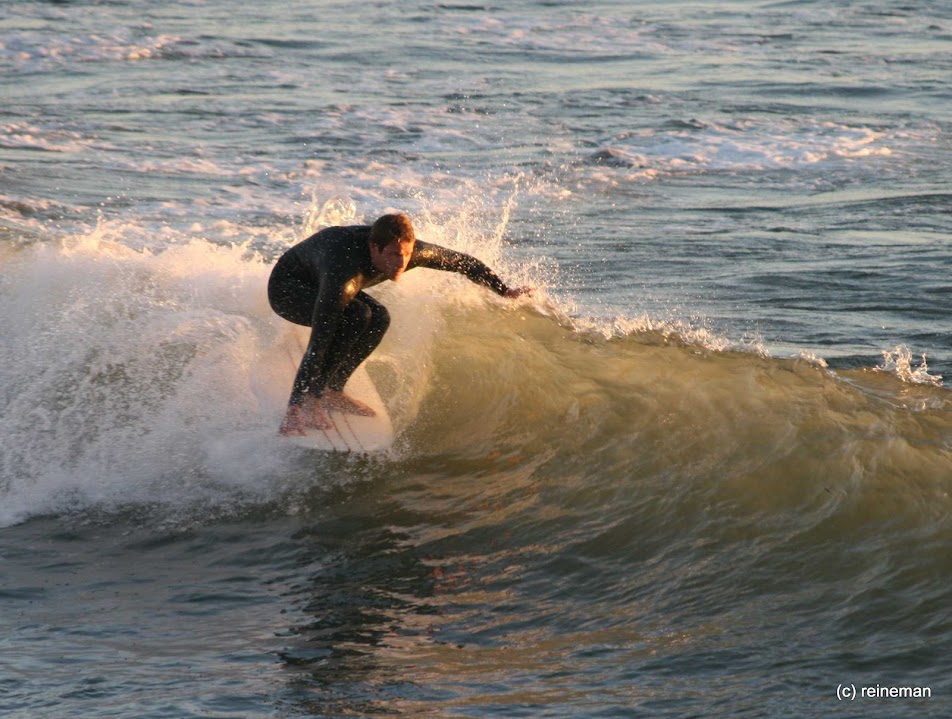CAMARILLO — There’s no question that climate change is affecting conditions for millions of surfers around the world, but a recent study co-authored by CSU Channel Islands (CSUCI) Assistant Professor of Environmental Science & Resource Management (ESRM) Dan Reineman suggests that our actions in response to climate change might have an even more profound and immediate effect than climate change itself.
 “Climate change is going to affect surf breaks, but those effects will be metered out slowly over the coming decades—many surfers may not notice them,” Reineman said. “By contrast, if coastal communities react to those potential climate change impacts by radically altering their coastlines—installing a seawall, for example—it could have an immediate and potentially existential effect on the quality of a wave.”
“Climate change is going to affect surf breaks, but those effects will be metered out slowly over the coming decades—many surfers may not notice them,” Reineman said. “By contrast, if coastal communities react to those potential climate change impacts by radically altering their coastlines—installing a seawall, for example—it could have an immediate and potentially existential effect on the quality of a wave.”
Waves that surfers ride are incredibly complex phenomena depending on many processes, Reineman explained, adding that waves form in far distant storms, travel thousands of miles across oceans, and break in different ways depending on the shape and composition of the shoreline. Through emissions of greenhouse gases and modifications to our coasts, humans are altering these processes.
To give surfers, policymakers, and the public a way to assess the vulnerability of specific surf breaks, Reineman and his co-author, coastal scientist Nick Sadrpour (formerly with the California Sea Grant program), developed a Surf Break Vulnerability-Climate Change Assessment Tool, which they dubbed the SurfCAT.
The tool is designed to empower people with their own knowledge about their coastlines. “By carefully considering a set of important characteristics for a surf break, including its sensitivity to tides, swell direction, sea floor, and others, users can determine its vulnerability to different impacts from our climate change,” Reineman said.
 Reineman and Sadrpour spent more than four years reviewing hundreds of studies on the science underlying key oceanographic processes, from wave formation to wave breaking, and from the scale of whole oceans to local beaches, plus all the recent research on how climate change will likely affect these processes.
Reineman and Sadrpour spent more than four years reviewing hundreds of studies on the science underlying key oceanographic processes, from wave formation to wave breaking, and from the scale of whole oceans to local beaches, plus all the recent research on how climate change will likely affect these processes.
By gathering and organizing the results of this scholarship, they developed a framework, the SurfCAT, and key conclusions about the potential effects of climate change on surfing. The research was published in Shore & Beach, the quarterly, peer-reviewed journal of the American Shore and Beach Preservation Association (ASBPA).
“Our goal was to provide a comprehensive review of how climate change would affect waves for surfing and to provide this review in a format that was not only rigorous and scientific, but also accessible to the average surfer, beachgoer, or local decisionmaker,” Sadrpour said.
This summer, Reineman will attend a summit of managers from surfing reserves around the world to share the study results and SurfCAT.
To read the study, visit: https://asbpa.org/publications/shore-and-beach/shore-beach-in-2023-vol-91/the-impacts-of-climate-change-on-surfing-resources.
CALIFORNIA STATE UNIVERSITY CHANNEL ISLANDS — California State University Channel Islands (CSUCI) is Ventura County’s only public university and opened in 2002 as the 23rd campus in the CSU system serving the regions of Ventura, Santa Barbara, and Los Angeles counties, as well as the entire state. CSUCI is located between Camarillo and the Oxnard Plain, midway between Santa Barbara and Los Angeles and 25 miles north from Malibu.
The campus is nestled against the foothills of the Santa Monica Mountains and is a 10-minute drive from the Pacific Ocean. With more than 5,600 students, 24,500 alumni, and 1,000 employees, CSUCI is poised to grow in size and distinction, while maintaining one of the most student-focused learning environments in public higher education with more than 90 academic degrees, teaching credentials, certificates, and professional and community programs.
Connect with and learn more by visiting www.csuci.edu or CSUCI’s Social Media.
The University encourages persons with disabilities to participate in its programs, events and activities. If you anticipate needing any type of accommodation, or have questions about the physical access provided, please contact the respective area below as soon as possible, but no later than seven (7) business days prior to the event/activity:
CSUCI Students: accommodations@csuci.edu
CSUCI Employees: christine.girardot@csuci.edu
Members of the Public: titleix@csuci.edu

